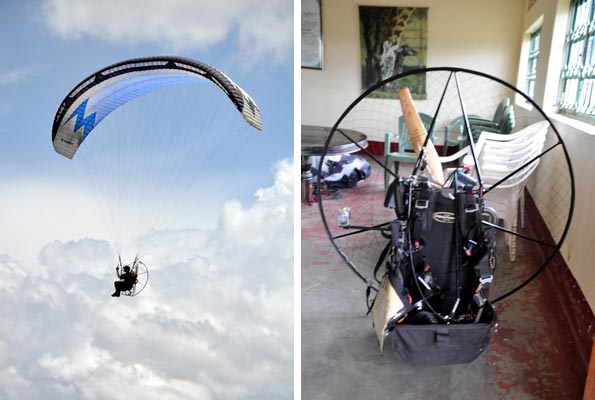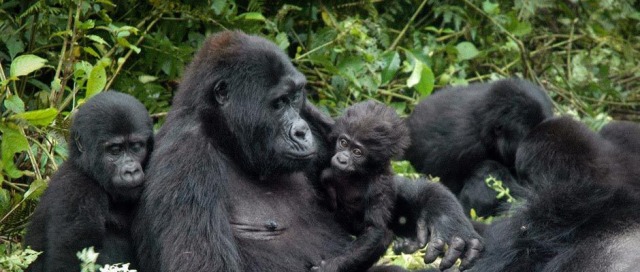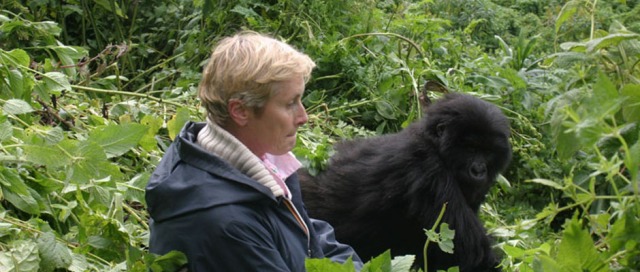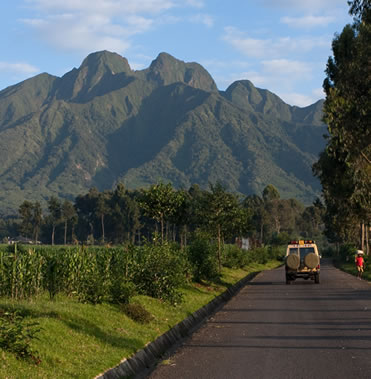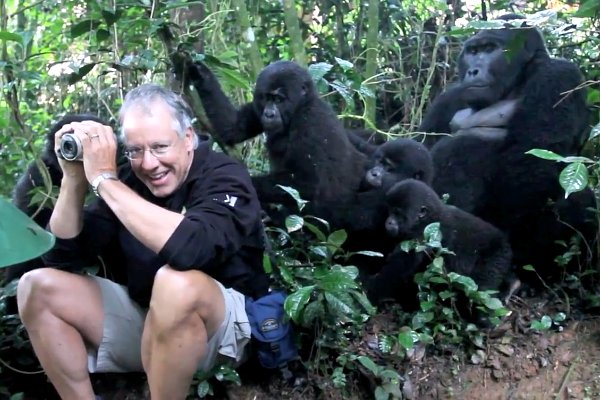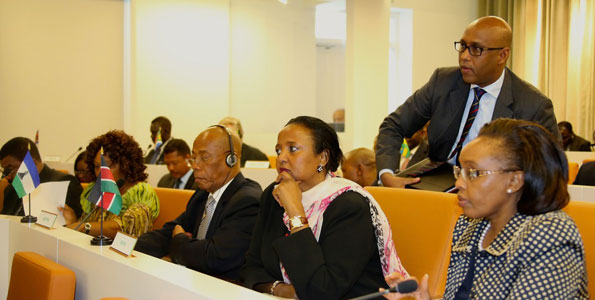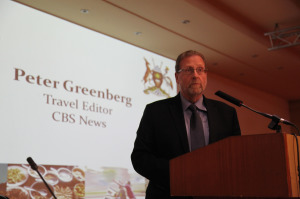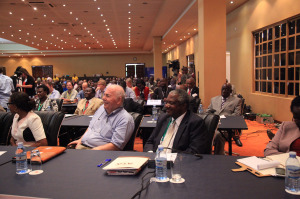The Top 10 Things one Must Experience in Uganda – From Gorillas to our Tasty Rolex
Visitors to Uganda have many choices when it comes to Experiences. Here are The Top 10 Things one Must Experience in Uganda – the Pearl of Africa. Gorilla and Chimpanzee Trekking are for most the top things to experience in Uganda.
Uganda is known for its Mountain Gorillas and people come here to track for Mountain Gorillas, what most do not know is that you can not only track Mountain Gorillas where you are with a Gorilla Family for one hour. In Uganda you can be with them for four hours on a Gorilla Habituation Experience.
Uganda, not Rwanda, not the Democratic Republic of Congo has the Gorilla Habituation Experience. A very limited group of visitors are allowed to participate in the Habituation Experience, Plan ahead if you like to be one of the few that will spend 4 hours with the Mountain Gorillas, definitely a Must Experience in Uganda.
When it comes to Chimpanzee Trekking in East Africa, there is no better country than Uganda. with almost 5000 chimpanzees Uganda has the largest chimpanzee population in East Africa. It has more parks and places for Chimpanzee Tracking and it has the best primate park in East Africa –Kibale Forest for the best Chimpanzee tracking around.
Uganda is the only country in East Africa that not only offers great Chimpanzee Treks, but a full-day with the Chimpanzees in Kibale Forest on a Chimpanzee Habituation Experience that lasts from early morning to late afternoon where you are with Researchers and guides. Another one of those top-things for visitors to Uganda to Experience.
There are many Wildlife Parks found in East Africa, however there is no other park such as Kidepo Valley Park, that is Africa as it used to be without the crowds, the Africa of over 50 years ago.
Kidepo Valley Park, named the #3 Wildlife Park by CNN has been also called “the Lost Eden.”
Less than 10 new visitors come here, you are experiencing the African Wild without the Crowds and while here visit the fierce Warrior- Nomads, the Karamajong People in one of their villages, called Manyatta. Hike up the Morungole Mountains and visit the most remote tribe in Uganda – the Ik people.
 4. Taste some of the Best Tropical Fruit Africa has to offer:
4. Taste some of the Best Tropical Fruit Africa has to offer:
When it come Pineapple, Ugandan Pineapple is the best. Mangoes, papaya and the enormous, sticky, Jackfruit, a most amazing treat.
Fruit Lovers will love Uganda and tasting some of our delicious fruit, fresh off of a tree is a must do and taste thing in Uganda.
Our Oranges might be green, but are tasty and sweet if you know which one to buy…and when it come to Bananas, Uganda is the Banana Republic of Africa with over 50 varieties grown.
If you are a vegetarian or Vegan, Uganda’s great fruit is one reason you will be just fine here. You have to experience the tasty Tropical Fruit of Uganda.
 5. Dip your Toes into Lake Bunyonyi:
5. Dip your Toes into Lake Bunyonyi:
Lake Bunyonyi is one of those top things to experience in Uganda, a place where you can just be and dip your toes into the clear Lake Bunyonyi – one of the top places in Uganda to relax and chill out, take a dugout canoe ride to one of the 29 islands, swim, hike, bike, relax more.
Lake Bunyonyi is not only famous for its beauty, it has become well-known as the best places in Africa for lovers of crayfish.
Some years ago Louisiana Crayfish was brought here and it has thrived, locals hardly eat them, but visitors from around the world delight in the various dishes offered by lodges and hotels around the Lake.
Enjoy a Scene at Lake Bunyonyi from “lord of the Rings.”
 6. Adrenaline Pumping Adventures on the River Nile:
6. Adrenaline Pumping Adventures on the River Nile:
Jinja on the River Nile just east of Kampala is home to must do experiences for visitors to Uganda such as white water rafting, Kayaking, bungee jumping, but also biking, horseback riding, ATV Quad Biking, Sunset Cruises on the Nile, Nile Perch Fishing and more.
Jinja – is east of Kampala, a mere two hours drive, it looks like a sleepy African Town, however looks can be deceptive and they are in the case of Jinja.
Jinja is the adrenaline pumping adventure capital with lots of choices when it comes to exciting adventures, especially on the River Nile.
Jinja, is one of the must experience towns for visitors to Uganda.
 7. Rolex – we eat them – we don’t wear them:
7. Rolex – we eat them – we don’t wear them:
In Uganda we do not wear a Rolex – we eat it. Rolex is Uganda’s favorite fast food and consumed for breakfast, lunch and dinner.
Uganda is home to many unique dishes, Rolex being one of them and Nsenene – Grasshoppers fried to perfection being another.
Rolex are a favorite among Backpackers, but it has also come to restaurants in various forms, try one or two.
Like said, we don’t wear Rolex – the watch that is, we eat the affordable variety – The Rolex Chapati with scrambled eggs and whatever else might delight your tastebuds.
 8. A Day with the Original People of the Forest – the Batwa Pygmies:
8. A Day with the Original People of the Forest – the Batwa Pygmies:
The Batwa People have lived for over 500,000 years in the forests of Southwest Uganda leaving a small ecological footprint.
Their history, their ways of living are unique and you can experience their lifestyle while with them in the forest, seeing the forest through the eyes of its original people in Bwindi Impenetrable Fores, Buniga Forest and Mgahinga Gorilla Park.
A visit with the Batwa People will be most rewarding since most visitors have no clue who these people, who lived here for over 500,000 years area, but you can find out on a forest walk with them.
 9. The Tree-Climbing Lions of Ishasha:
9. The Tree-Climbing Lions of Ishasha:
The Ishasha Area is one of the best areas in all of East Africa for Tree-Climbing Lions.
It is located inside the southern area of Queen Elizabeth Park half-way from Mweya to Bwindi Impenetrable Forest.
You can stay overnight here in the fabulous Ishasha Wilderness Camp while you trek the Tree Climbing Lions of Ishasha.
The Tree-Climbing Lions of Ishasha are attracting more and more visitors, not just from around the world, but from Uganda itself.
10. Uganda’s Hidden Tropical Islands:
Uganda is landlocked nation, a thousand miles from the Indian Ocean, yet it has its hidden Tropical Islands, the Ssese Islands where you can walk on sandy beaches, fish, swim, hike, bike and eat some fresh fish from Lake Victoria.
The perfect setting at the end of your safari in Uganda, a place where you can relax for a few days before returning home to your country.
The Ssese Islands have been called by Lonely Planet, Uganda’s Secret Tropical Islands and to most visitors to Uganda they are just that. We can arrange a visit for you.
The Top 10 Things one Must Experience in Uganda – here you have them – an eclectic collection of things and places that are uniquely Uganda – the Pearl of Africa. The things that Ugandans and visitors alike enjoy in traveling in and through the countryside.
The Top 10 Things one Must Experience in Uganda – if you like to include some in your safari with us – please let us know.





